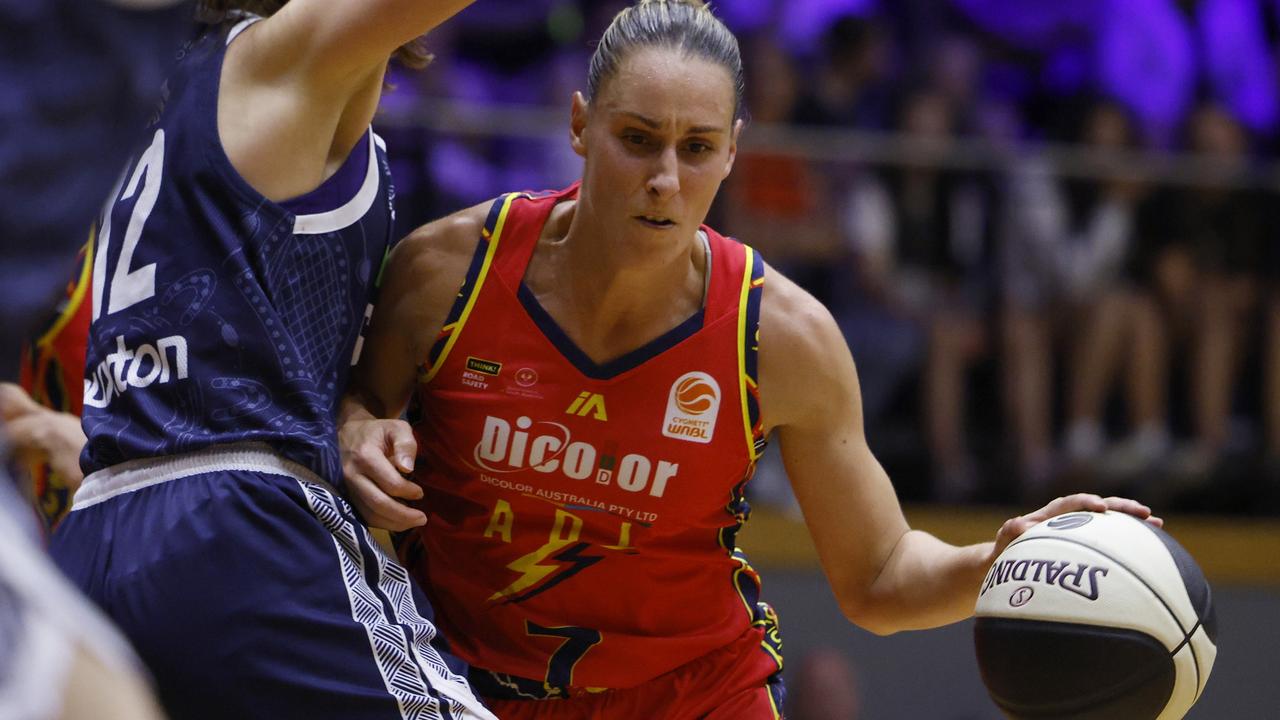Olympic swimmer Emily Seebohm opens up on crippling endometriosis battle and period irregularities
Australian swimming legend Emily Seebohm’s battles with endometriosis significantly impacted her at the 2016 Olympics, yet the swimming great almost missed the event completely.
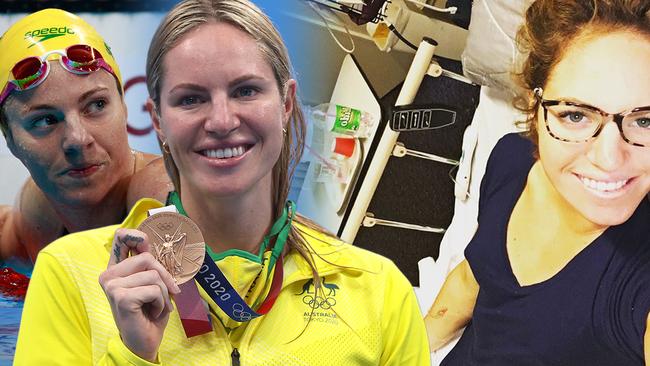
CODE Insight
Don't miss out on the headlines from CODE Insight. Followed categories will be added to My News.
There are questions Emily Seebohm wishes she’d have asked.
The champion swimmer’s battles with endometriosis are well known.
Plug the terms “endometriosis” and “Olympics” into a search engine and reams of information about Seebohm’s battle with the disease in which tissue similar to the lining of the uterus grows outside the uterus, pops up.
Most of it about the Rio Olympics, where Seebohm, then competing at her third Games, struggled to be at her best while battling her own body.
Bombed out in her individual events despite heading into the 100m and 200m backstroke as defending world champion; surged back to help Australia to win medley relay silver while battling her own body.
Seebohm had known something wasn’t quite right.
Her menstrual cycle was only 19-20 days in total, she would experience a period of about nine days and then have just over a week’s respite before it would return, the pain building and “everything that comes with the cycle just multiplied”.
Layer that on to training in a high performance environment and Seebohm was often in agony.
Back pain so bad it “felt like my back was going to snap in half” when lifting weights, stomach aches, cramps, headaches, sugar cravings, Seebohm had the lot over and over and over again.
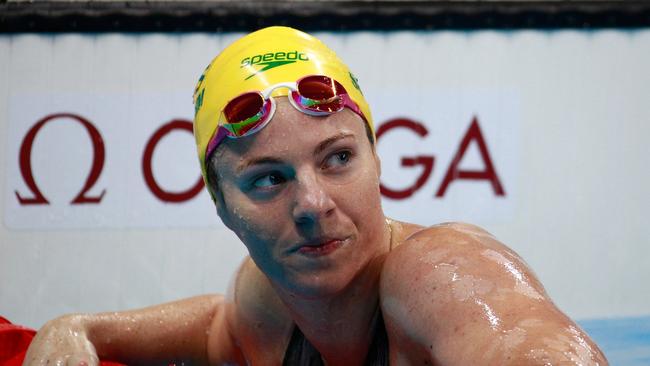
Having a Mirena - a hormonal intra-uterine device (IUD) - inserted helped for a stretch but even that eventually failed.
“Because I was having a period for so long, I wouldn’t get a long break in between those cycles so everything seemed like it was on top of each other all the time,” Seebohm said.
“So when I had a period for nine days and then the next one came maybe a week later, I’d be trying to just recover from the first one and then the second one hits you and you’re just overwhelmed all over again.
“I just remember (there) being … so much chaos in my head with everything that was running through my mind. It was a crazy, crazy time.”
HOW DID SHE DO IT?
What Seebohm managed to achieve during that time was incredible given everything else her body was battling.
She takes satisfaction from that but there’s still disappointment that she wasn’t able to trust that instinct that something just wasn’t right.
“I’m disappointed that I couldn’t listen to myself more, that I couldn’t be more in tune with my body,” she said.
“Now I have such an understanding (of what’s going on) because I’ve read so much about it, whereas when it was first starting, I always put it off to something else.
“It was training, it was getting over being sick, things like that. So I wish I had more power in me to really sit down with myself and listen and be able to like communicate that to someone and not just like go along with it for so long.
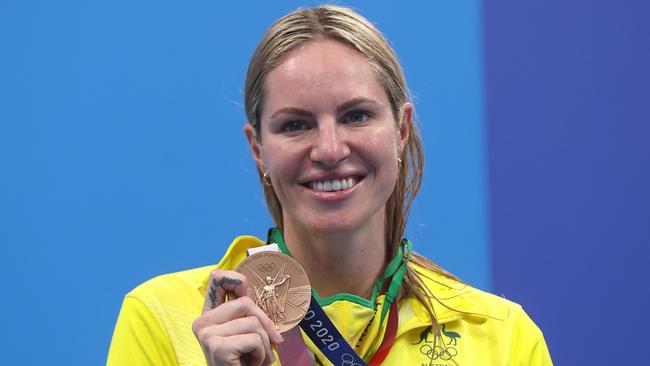
“There was so long that I was just dealing with it and putting up with it.
“I marvel at what I did but I think I could have done a better job for myself.”
By the time Seebohm explained the situation fully to her doctor in 2016, the Olympics were little more than two months away.
Surgery was the only option to confirm health professionals’ suspicions she was battling endometriosis but Seebohm was unwilling to risk a four-year preparation.
“I was like, ‘well, it’s June and the Olympics are in August, this is just not possible’,” she said.
“I didn’t believe in it enough.
“When I left that office and there was nothing really that I could do until after the Olympics, I was like well, let’s shelve that and let’s go back to working really hard.
“I think yet the toll of that was how I performed in Rio. I can’t be disappointed because I really pushed myself to the limit and there was nothing else I could give.
“I’d trained hard, I’d done everything that I could possibly do right - apart from listen to my own body.”
DRIVING FOR CHANGE
It was a tough lesson but it taught Seebohm - now an ambassador for Endometriosis Australia - to have the confidence to speak up, ask questions, have uncomfortable conversations and try to normalise discussions about women’s health.
Seebohm’s preparations for her fourth Olympics in Tokyo were a stark contrast to the Rio Games.
She listened to her body, rested when she needed to, knew she needed to work smarter, not harder.
The rewards came not only in the form of medals - individual bronze in the 200m backstroke and gold as a member of the medley relay squad - but feedback she has received after opening up to share her own journey.
“It’s super hard to be really personal on social media, it’s not easy to let everything go,” said Seebohm, whose feed is usually carefully curated.
“I posted a photo in my hospital bed. I was in the rattiest pyjamas, I’d just had surgery, I had my glasses on and my hair was a mess.
“I just didn’t care. But I knew that the message was super important and I know that it was going to help other people.
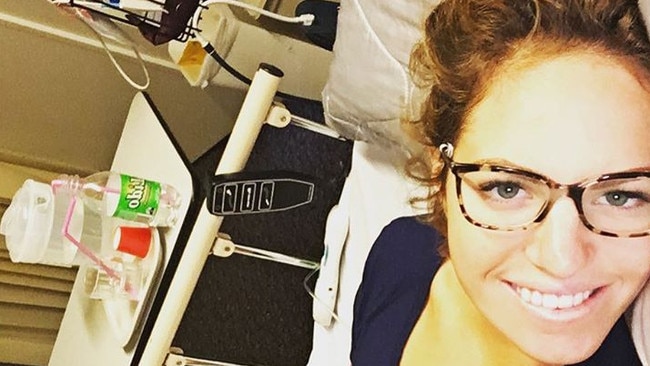
“A lot of people reached out to me after my surgery and gave me tips and stuff … and I wouldn’t have had that opportunity if I didn’t open up to people and let people into a little bit of that personal side that not that many people get to see.”
Starting conversations. It’s what Seebohm hopes sharing her story does, just as she hopes Swimming Australia’s recent partnership with City Fertility will do for fans.
Catching the company’s details on poolside advertising or the sport’s social media feeds, Seebohm hopes, will prompt people to look up the company and delve into the wealth of online resources covering female physiology and fertility, including the latest research in the groundbreaking Ignite Athlete Female Health and Wellbeing Program.
And then talk about it.
“It’s conversations that you can have with your friend or with your daughter or with your mum … and I think it’s important for both males and females to have an understanding of the menstrual cycle and how it affects people differently,” she said.
MISSED OPPORTUNITY
Certainly, it’s different from when Seebohm started her national team journey in 2007. Poked, prodded and measured for more than a decade to help coaches and the athlete gain any advantage possible, Seebohm finds it amazing it has taken so long to include athletes’ menstrual cycle in that conversation.
“It’s interesting that only that we’re only starting to discuss it now. I think that we could have done so much more for swimmers coming through,” she said.
“As much as it I wish it was there when I was younger, I’m glad it’s there now - I think better late than never - and I’m proud to be a part of the team supporting that change and having that as an option for people to get more knowledge and more understanding on the menstrual cycle.
“Yeah, I wish it happened back in the day. But unfortunately we can’t go back in time.”
The next generation will be more open to those conversations too, Seebohm believes.
“We have so many young swimmers coming through so they’re probably you know at that stage where they’re more willing to understand it and listen, whereas maybe back in the day we were still in that culture where we were too shy to have those conversations,” she said.
“The generation now are more willing to listen and talk and freely be able to have those conversations and not make it so taboo.”


